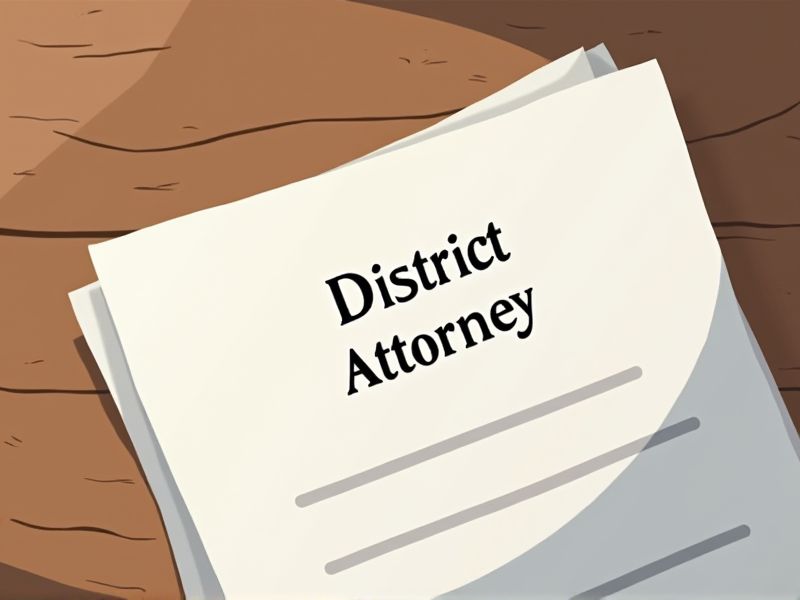
District Attorneys play a critical role in the criminal justice system, where legal proficiencies and ethical standards are paramount. Certifications enhance their knowledge of evolving laws and ensure adherence to stringent professional guidelines. They also provide validation of specialized skill sets that are necessary for handling complex legal matters. Here are some important certifications a District Attorney may need.
Juris Doctor (JD) Degree Certificate
The Juris Doctor (JD) degree provides the foundational legal education necessary for understanding and applying the law effectively. Obtaining a JD ensures a comprehensive understanding of legal principles, which is critical for making informed decisions in a district attorney role. The rigorous training in legal research, writing, and ethics prepares individuals to prosecute cases and uphold justice. State bar requirements often mandate a law degree, making the JD a prerequisite for practicing as a district attorney.
State Bar Admission Certificate
A State Bar Admission Certificate signifies that an attorney meets the legal qualifications required to practice law in a specific jurisdiction, ensuring legal competence. This certification guarantees that the individual has passed rigorous examinations, reflecting their understanding and adherence to legal ethical standards. For a District Attorney, possessing this certificate is crucial as it demonstrates their professionalism and capability to prosecute criminal cases effectively. Lack of such verification could lead to questions about legal authority and competency, potentially undermining the judicial process.
Certified Prosecutor Credential
A Certified Prosecutor Credential ensures a district attorney possesses the necessary expertise and knowledge to handle complex legal cases effectively. It establishes a standard of professional competence and commitment to ethical conduct, which is crucial when representing the government in criminal prosecutions. Having this credential enhances the public's trust in the judicial system, as it reflects a commitment to excellence and accountability. It facilitates career advancement by distinguishing a prosecutor in a competitive legal field.
Board Certification in Criminal Law
Board Certification in Criminal Law ensures a District Attorney possesses advanced knowledge in handling complex criminal cases. The certification process involves rigorous testing and peer evaluations, affirming the attorney's expertise and competence. It establishes the attorney's credibility and assures the public of their proficiency in criminal law matters. This certification can increase public trust in the judicial process, fostering greater confidence in legal outcomes.
Continuing Legal Education (CLE) Certificate
Laws and regulations continually evolve, requiring District Attorneys to stay informed to effectively prosecute cases, hence the need for Continuing Legal Education (CLE) certificates. Regular CLE participation ensures District Attorneys maintain competency in legal practices and uphold ethical standards. Engaging in CLE programs allows them to refine trial strategies and stay abreast of technological advancements impacting legal procedures. The CLE certificate also serves as a formal acknowledgment of their commitment to professional development and legal excellence.
Trial Advocacy Certification
Trial Advocacy Certification enhances a district attorney's courtroom skills, ensuring effective prosecution. A certified attorney is better equipped to understand complex legal strategies, which can increase the chances of successful case outcomes. This certification builds credibility and trust within the legal community and the public. It also provides a structured path for continuous professional development, fostering a culture of competence and accountability.
Mediation and Conflict Resolution Certification
The certification in mediation and conflict resolution provides district attorneys with enhanced skills in negotiation, fostering more effective plea deals and reducing court caseloads. Conflict resolution knowledge helps them understand diverse perspectives, improving community relations and building trust. This specialized training can lead to more restorative justice practices, potentially reducing recidivism rates. A district attorney with such certification is better equipped to handle cases involving complex interpersonal dynamics, leading to more just outcomes.
Legal Ethics Certification
Legal ethics certification is needed for district attorneys to ensure they uphold the highest standards of professional conduct, which directly impacts the fair administration of justice. This certification reinforces public trust, as it assures the community that the district attorney practices transparency, honesty, and integrity. Certification addresses potential conflicts of interest and advocates for accountability, preventing misconduct and its negative ramifications on cases. It guides district attorneys in navigating complex ethical dilemmas, promoting balanced decision-making that protects the legal rights of all involved parties.
Leadership in Public Safety Certification
A Leadership in Public Safety Certification enhances a District Attorney's ability to coordinate effectively with law enforcement agencies, ensuring cohesive responses to criminal activity. This certification provides training in crisis management, which is crucial for addressing complex legal situations that may arise suddenly. It emphasizes ethical leadership, equipping District Attorneys with the tools needed to maintain public trust and uphold justice in their jurisdictions. A certified District Attorney is more adept at implementing policies that prioritize community safety and foster transparent legal processes.
Forensic Evidence Investigation Certification
Gaining forensic evidence investigation certification equips district attorneys with a deeper understanding of the scientific principles underpinning evidence, enhancing their ability to evaluate its validity in court proceedings. This certification ensures they can effectively interpret and communicate complex forensic data and findings to a jury, thereby strengthening case arguments. An enhanced grasp of forensic methodologies can also aid in identifying potential flaws or discrepancies in evidence handling, crucial for upholding justice. Acquiring competence in forensic science fosters collaboration with experts and law enforcement, facilitating a more integrated and informed approach to case preparation and prosecution.
Summary
By gaining certifications, you enhance your trust in the District Attorney's capabilities. These credentials ensure the DA adheres to ethical and professional standards, leading to increased confidence in judicial processes. The community benefits from improved legal outcomes and fairer trials due to an updated skill set. Public support for the judicial system likely strengthens as transparency and accountability are emphasized.
